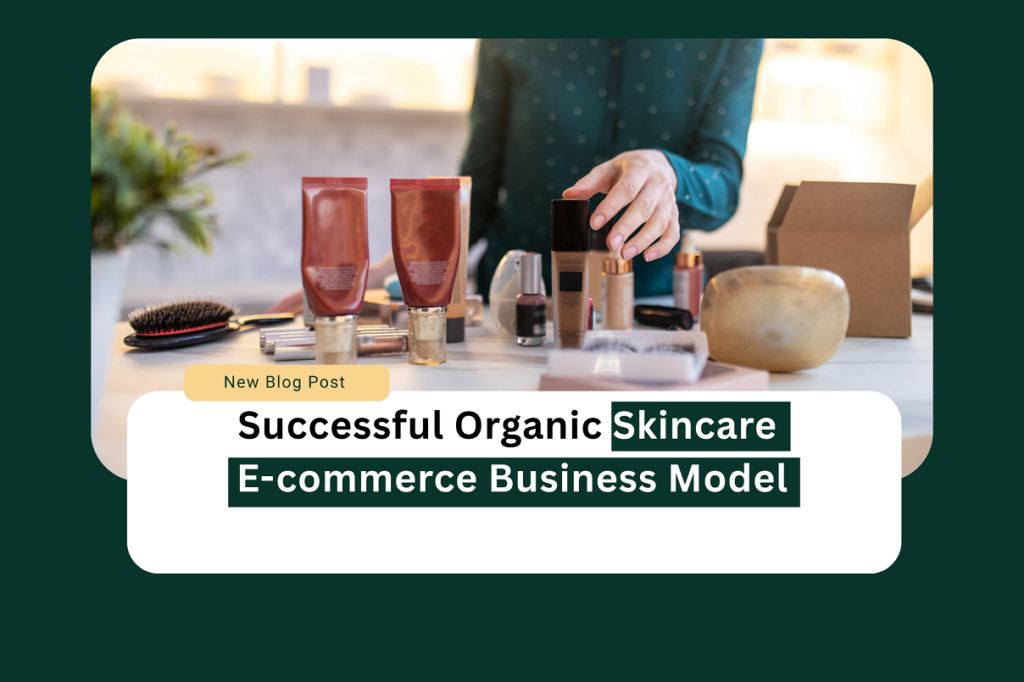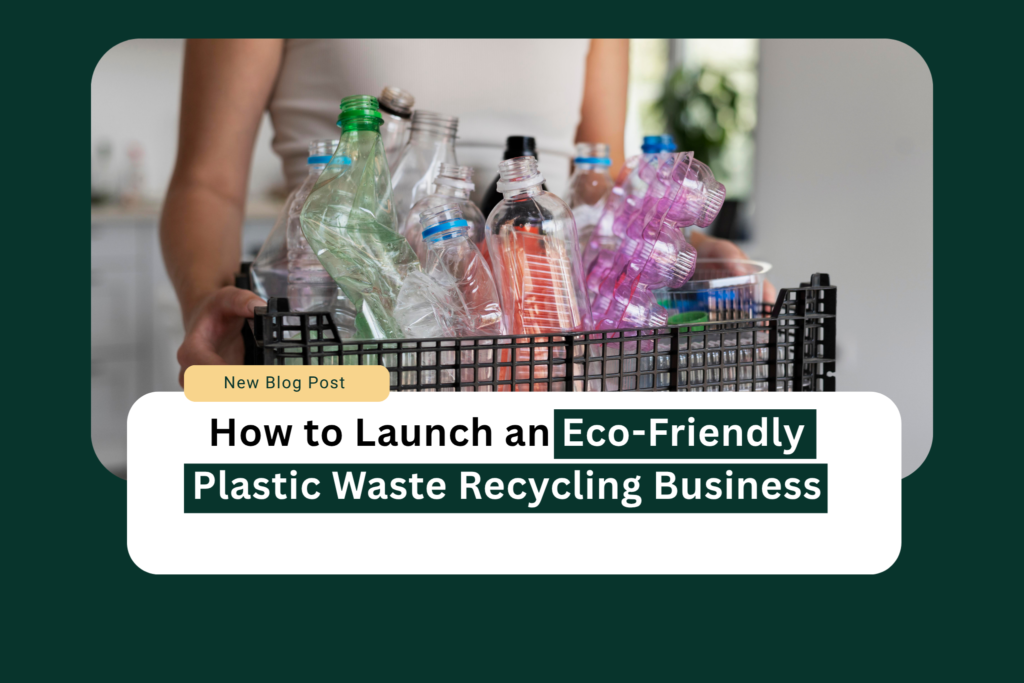Introduction
Recent years have seen a remarkable expansion in the organic skincare e-commerce business model due to consumers’ strong preference for natural ingredients and sustainable production practices. The organic skincare market achieved $9.1 billion in global value during 2023, and experts, based on research from Grand View Research, predict a 9.6% compound annual growth rate from 2024 through 2030. The market shows a deep consumer movement toward buying clean beauty items that avoid dangerous chemicals.
The development of an organic skincare e-commerce business demands a methodical approach to integrate sustainability with high-quality products while achieving digital marketing success. This essay outlines a method to create an effective organic skincare e-commerce business framework that satisfies current consumer requirements and generates revenue.
Understanding the Organic Skincare Market Landscape
Your organic skincare e-commerce business model requires complete knowledge of your chosen market segment. Research shows that modern consumers possess high levels of product knowledge as 73% of millennials demonstrate a willingness to spend extra money on sustainable products (Nielsen study). The growing awareness of organic skincare has resulted in outstanding market growth. The main distinction between organic and conventional skincare brands exists in how they handle ingredient disclosure and environmental practices.
In every aspect of your organic skincare e-commerce business plan, authenticity should be a top priority. The business needs to demonstrate organic authenticity by obtaining certifications from USDA Organic, COSMOS, or EcoCert. Organic Trade Association reports that products with third-party certifications receive 20-30% higher prices and achieve better trust from consumers. Your business model should establish a premium position that enables brand value development above price-based competition.
Crafting a Sustainable Supply Chain
An organic skincare e-commerce business model requires a dependable and clear supply chain to achieve success. The situation offers potential benefits together with specific difficulties to handle.
The implementation of sustainability needs to appear throughout all levels of your supply chain strategy. The strategy requires ethical sourcing as well as fair-trade relationships with ingredient suppliers and environmentally friendly packaging solutions. The data from Statista shows that 57% of consumers will reconsider their buying choices to minimize environmental impact thus your supply chain decisions become essential for your brand positioning. Your sustainable sourcing expenses will reduce short-term profits but create essential value propositions that support higher prices for your organic skincare e-commerce business.
Digital Marketing Strategy for Organic Skincare E-commerce
Your organic skincare e-commerce business model depends heavily on the success of its marketing aspects. E-commerce cannot let customers examine products in person so businesses must establish digital platforms that establish trust while virtually demonstrating product advantages. This specific situation makes content marketing essential for businesses.
Providing educational information about ingredients and production processes together with skincare benefits will help establish your brand authority. Educational content marketing leads to 3 times more customer leads than promotional content marketing efforts based on data from Content Marketing Institute. Your organic skincare e commerce business model needs to dedicate a budget for content creation which includes writing blog articles making video demonstrations and spotlighting specific ingredients.
Social proof functions as a vital component. The practice of enabling customer reviews together with testimonials creates powerful buying influences for consumers. According to BrightLocal data, 91% of customers base their buying decisions on online reviews while 84% rely on reviews to the same extent as personal recommendations. A review system together with user-generated content must become essential features within your skincare e-commerce business model.
Technology Infrastructure and Customer Experience
Operation efficiency and outstanding customer experience must be supported by the technological framework of your skincare e-commerce business model. Choose an e-commerce platform that provides advanced features for product organization alongside ingredient display along with order processing capabilities. The platform must enable subscription features that improve the value customers receive during their lifetime.
The customer experience surpasses the point of purchasing. Email sequences following purchases should provide educational information about product usage and related product recommendations to customers. Omnisend reports that post-purchase emails generate a 40.5% open rate thus establishing them as essential tools for nurturing customer relationships. Your organic skincare e-commerce business model needs to understand technology as both a sales channel and a brand experience delivery system and customer service framework.
Financial Considerations and Growth Planning
The organic skincare e-commerce business model creates special financial conditions that both present difficulties and generate potential benefits. Organic skincare businesses must spend more money on quality ingredient certifications and sustainable packaging before they launch, while conventional skincare businesses do not. The initial expenses result in higher product margins, which reach 65-75%, while conventional skincare products typically generate margins of 45-55% per Beauty Independent.
Your pricing approach needs to demonstrate both the expenses you face and the brand image you present to customers. Premium pricing finds its basis in high-quality ingredients together with certifications and storytelling about the brand. The growth of your business should include investigations into white-label and private-label strategies to enhance manufacturing efficiency and ensure quality standards remain intact. skincare e-commerce businesses that implement their operations effectively will reach profitability in 18-24 months before experiencing continuous growth from subscription-based and repeat customer purchases.
Conclusion
A profitable organic skincare e-commerce business needs the proper combination of product development alongside sustainable practices, digital marketing, and enhanced customer experiences. Through ingredient quality prioritization and transparent supply chain practices, as well as educational content delivery, your organic skincare brand can attract conscious consumers looking for natural skincare products. The organic skincare e-commerce business model presents substantial growth opportunities to entrepreneurs who embrace practices and sustainability because the global natural and organic beauty market is expected to reach $54.5 billion by 2027 (Statista).
We’d love to hear your thoughts about this article on building an skincare e-commerce business model. Have you implemented any of these strategies in your own business? Please share your feedback in the comments below and spread the word by sharing this article on your social media channels to help other aspiring organic skincare entrepreneurs.
FAQs
Which certifications determine the quality of organic skincare products?
Choose USDA Organic certification for North American markets and COSMOS or EcoCert for other markets based on where your ingredients come from.
What amount of capital does it require to launch an organic skincare business through e-commerce?
The initial investment for starting this business ranges from $10,000 to $50,000, which covers product development alongside certification processes and website establishment expenses.
What’s the average profit margin for organic skincare products?
The profit margin from organic skincare typically reaches 65-75%, while conventional skincare generates 45-55%.
How long until profitability?
The majority of organic skincare e-commerce businesses need between 18 and 24 months to become profitable.
Which marketing platforms deliver the best results for organic skincare products?
Content marketing in combination with Instagram and email marketing proves to be the most profitable marketing channel.
Read More : https://theacechronicle.com/it-and-tech-consulting-business-model/








